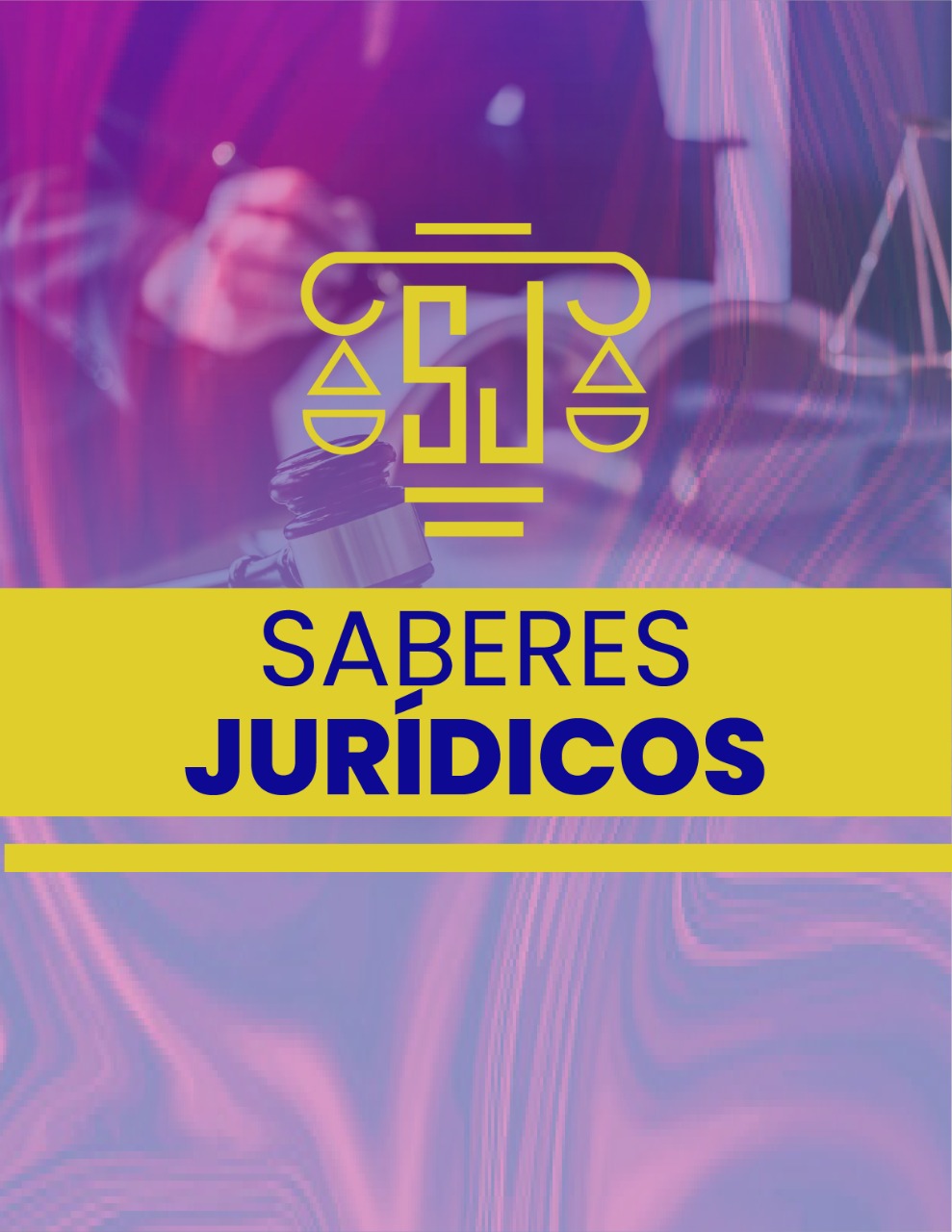Abstract
The application of law in times of the legal system and Constitutional State of Law, revolves around the possibility of finding an answer that not only satisfies the needs of the specific case, but that is also of the procedural subjects or direct recipients who intervene in it. The judicial decision in terms of this constitutional perspective should be much more <<ambitious>> and <<generous>>, in the sense that it is directly connected with the principle of justice, and the relationship between democracy and fundamental rights. For this to be achieved, regardless of what type of legal system we are in, or what order, the judges must apply the law. The question we intend to answer is going to ask the same, although rethought in postmodern times. How does the judicial decision satisfy higher postulates of the legal system and order, based on a decisional margin that includes most recipients? In this article we try to show theoretically, and in summary form, that there is a special model of fundamental rights that answers this question. As a partial conclusion, we show that the solutions to the lack of decisional coherence in the decisions of our judges are due to the lack of exploration of the discursive phases of the judicial decision as necessary and non-contingent relationships between constitutional hermeneutics and fundamental arguments.References
Alexy, R. (1997). Teoría de la argumentación jurídica. Madrid: Centro de Estudios Constitucionales.
Alexy, R. (2007). Teoría de los derechos fundamentales. Madrid: Centro de Estudios Constitucionales.
Alexy. R. (2004). El concepto y la validez del derecho. Segunda ed. Trad. Jorge M. Seña. Barcelona: Editorial Gedisa.
Bobbio, N. (2016). Teoría general del derecho. Quita ed. Bogotá: Editorial Temis.
Bonilla Maldonado, D. (2017). Los mandarines del derecho. Trasplantes jurídicos, análisis cultural del derecho y trabajo pro bono. Bogotá: Siglo del hombre editores y Universidad de los Andes.
Barrero-Berardinelli, J. (2012). El efecto de irradiación de los Derechos Fundamentales en el Lüth de 1958. International Law, Revista Colombiana de Derecho Internacional, Vol. 10, Num. 20, 213-246. 1692-8156(201206)12:202.0.TX;2-U
Bechara, A. (2017). La carga invertida de los derechos fundamentales como procedimiento de creación judicial: diálogo jurisdiccional en la garantía de protección secundaria. La creación judicial del derecho y el diálogo entre jueces. Universidad Autónoma de Barcelona. https://ddd.uab.cat/record/176422
Bechara, A. (2019a). La teoría de Luigi Ferrajoli en la garantía secundaria de habeas corpus en la ley 906 de 2004, 167-189. En: Isaza, J. (2019) (comp.) Temas de teoría del derecho. Barranquilla, Bogotá: Editorial Tirant lo Blanch y Editorial Universidad del Norte.
Bechara, A. (2019b). Jurisprudencia de principios. Barranquilla, Bogotá: Universidad Externado de Colombia y Universidad del Norte.
Bechara, A. (2021). Constitucionalismo no positivista: entre el constitucionalismo de los derechos y el no positivismo principialista. En: Rodríguez-Serpa, F. (comp.) (2021). Dialéctica constitucional. Barranquilla, Colombia: Ediciones Universidad Simón Bolívar.
Carrillo, Y., y Bechara, A. (2019). La balanza de los derechos. Bogotá: Grupo editorial Ibáñez.
Corte Constitucional. Sentencia T- 406 de 1992. M.P.: Ciro Angarita Barón.
Corte Constitucional. Sentencia C-134 de 1994. M.P: Vladimiro Naranjo Mesa.
Corte Constitucional. Sentencia T- T-425 de 1995. M. P.: Eduardo Cifuentes Muñoz.
Corte Constitucional. Sentencia C-332 de 1999. M.P: José Gregorio Hernández Galindo.
Corte Constitucional. Sentencia C-590 de 2005. M.P.: Jaime Córdoba Triviño.
Corte Constitucional. Sentencia C-621 de 2015. M.P.: Jorge Ignacio Pretelt Chaljub.
Corte Constitucional. Sentencia T-596 de 2017. M.P.: Alejandro Linares Cantillo.
Corte Constitucional. Sentencia SU-024 de 2018. M. P: Cristina Pardo Schlesinger.
Corte Constitucional. Sentencia T-195 de 2019. M.P.: José Fernando Reyes Cuartas.
Corte Constitucional. Sentencia C-174 de 2020. M. P: Luis Guillermo Guerrero Pérez.
Corte Constitucional. Sentencia C-293 de 2020. M.S.: Gloria Ortiz Delgado y Cristina Pardo Schlesinger.
Corte Constitucional. Sentencia T-002 de 2021. M.S: Gloria Stella Ortiz Delgado.
Dworkin, R. (1984). Los derechos en serio. Trad. Albert Calsamiglia. Barcelona: Editorial Ariel.
García Figueroa, A. (1998). Principios y positivismo jurídico: el no positivismo principialista en las teorías de Ronald Dworkin y Robert Alexy. Centro de Estudios Constitucionales. Madrid.
Guastini. R. (1999). Distinguiendo. Estudios de teoría y metateoría del derecho. Trad. Jordi Ferrer. Barcelona: Editorial Gedisa.
Guastini. R. (2017). Interpretar y argumentar. Trad. Silvina Álvarez. Centro de Estudios Constitucionales. Madrid.
Hart, H. (1964). El concepto de derecho. Trad. Genaro R. Carrió. Buenos Aires: Abeledo Perrot.
Jakobs, G. (2001). Injerencia y dominio del hecho. Dos estudios sobre la parte general del derecho penal. Trad. Manuel Cancio Meliá. Bogotá: Universidad Externado de Colombia.
Lifante Vidal, I. (2018). Argumentación e interpretación jurídica. Valencia: Tirant lo blanch.
Luhmann, N. (2012). Sociología del derecho. Universidad Libre. Facultad de Filosofia. Doctorado en Derecho. Bogotá.
Maturana, H., & Varela, F. (1980). Autopoiesis and cognition: the realization of the living. Dordrecht, Holland: Reidel Publishing Company.
Mendoza, F., y Bechara, A. (2020). Derechos humanos como derechos fundamentales: discusiones en la filosofía del derecho del Estado constitucional. En: Narváez, B. (ed.) Caminos de la dignidad: reflexiones sobre las distintas facetas de los derechos humanos. Sincelejo, Colombia, Editorial CECAR. https://doi.org/10.21892/9789585547889
Monroy Cabra, M. (2013). La interpretación constitucional. Tercera ed. Bogotá: Librería Ediciones del profesional.
Moreso, J.J. (2009). La Constitución un modelo para armar. Barcelona: Marcial Pons.
Prieto Sanchís, L. (2013). El constitucionalismo de los derechos. Madrid: Trotta.
Quinche, M. (2013). Vías de hecho. Acción de tutela contra providencias. Octava ed. Bogotá: Temis.
Waluchow, W. (2015). Strauss, la democracia y el constitucionalismo del árbol vivo. En J. Fabra y L. García Jaramillo (eds.), Filosofía del derecho constitucional. México: Instituto de Investigaciones Jurídicas, UNAM.


